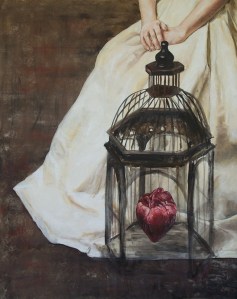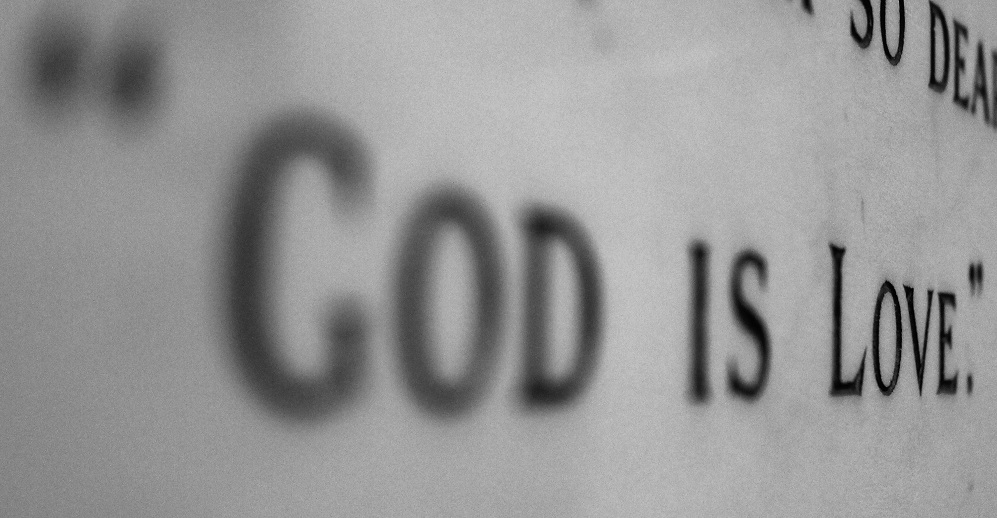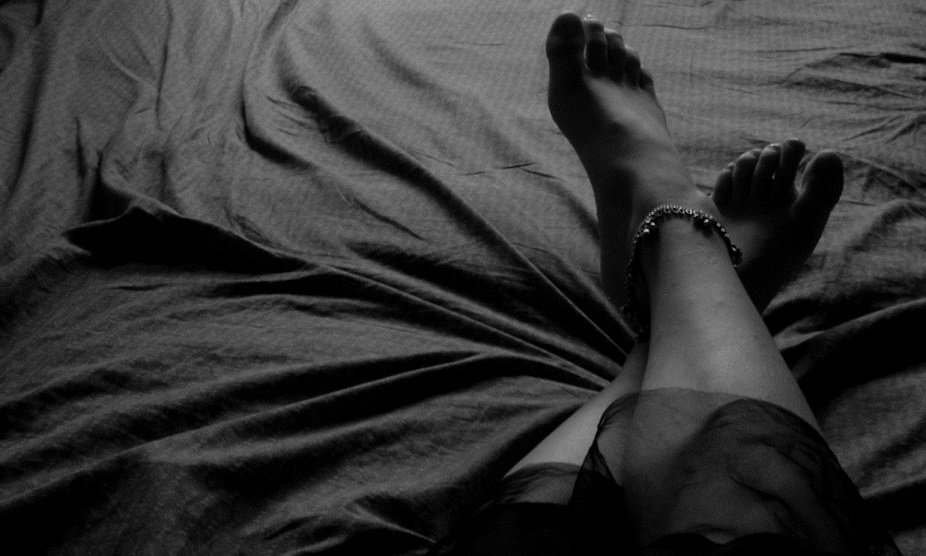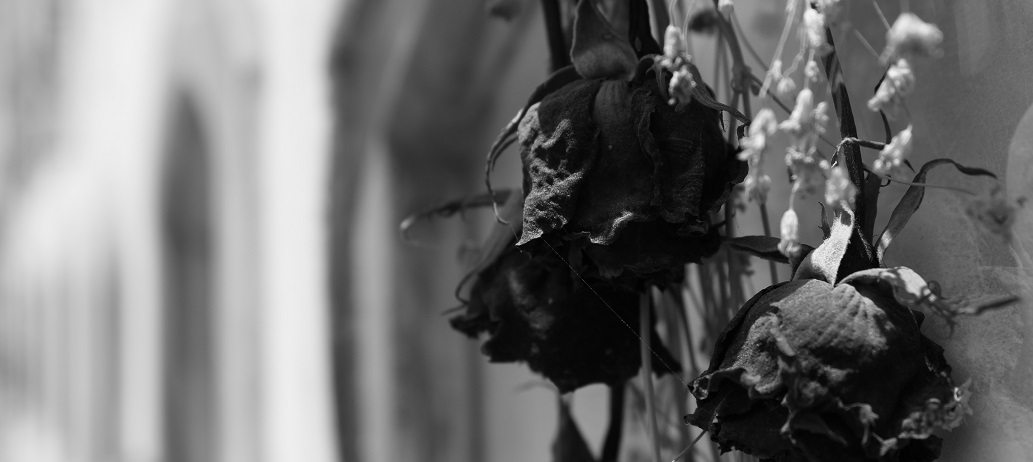[trigger warning for abuse and rape]
Her.meneutics recently ran an article titled “Guard your Heart” doesn’t mean Christians can’t date. It was interesting, and I think worth reading. Didn’t say a whole lot that was particularly new to me, but it made me moderately happy to see thoughts like these running on a “mainstream” discussion outlet.
What really caught my attention was in the comments. The amazing Dianna Anderson pointed out a few statements in the article that had left me with a bad aftertaste I couldn’t identify, but tasted familiar. There are moments when I read something, and it just… feels off somehow, but I don’t know what it is. Dianna hit the nail on the head, beginning by quoting the statements that had just not felt right to me:
“‘A number of my female friends learned to guard their hearts from a parent after years of emotional abuse. Until they did so, they were wracked with shame and insecurity. Their wellsprings were not life giving, but toxic.‘ That’s pretty victim-blamey. So’s this: “Unwise dating relationships can have a similar effect. When a woman gives her heart too freely to men who might abuse it, she endangers the wellspring of her soul.” A woman being vulnerable is not the reason she gets hurt by other people. A woman gets hurt by other people BECAUSE OTHER PEOPLE CHOOSE TO HURT HER. End of.”
Two thumbs up to Dianna. I couldn’t have said it better. But, then there was this response, from Sharon Miller, the author of the article:
“Dianna, I am curious about how and where you locate personal agency. “Victim” is not an identity we should ever use to label a person’s identity. Even when a person is totally victimized by another, they have agency in how they respond to the victimization. Labeling women as complete and utter victims, to my mind, is the most agency-robbing thing we can do. What’s more, it leaves no space for acknowledging personal folly or sin. While some women are victimized due to no fault of their own, being hurt by a man does not, by definition, make a woman a victim.” [emphasis added]
Oy vey.
My reaction to Sharon’s comment was visceral, and immediate. I could instantly feel myself recoiling, and even now, as I’m writing this, I’m having to fight back nausea. A headache is fluttering around the edges of my vision. I don’t want to write about this– I don’t want to touch this with a ten-foot pole, but I have to. Not just for me, but for every woman I’ve ever known who has been damaged by teachings like this one.
First, let me start out by acknowledging that there can be power, for some, in adopting a “victory over the victim mentality.” I know, because it helped my mother who experienced a lifetime of abuse. Throwing off the “victim label,” as she puts it, allowed her to begin the healing process. She refused to be defined by what had happened to her, or limited by it. She didn’t want to see herself as a victim, because, to her, that gave her abuser more power over her, even though he was gone. She was done with letting him control her thoughts and her actions, her emotions and her responses. She wanted no more of it. Claiming “victory” allowed her to do that.
But, for me, being instructed by pastors and teachers and professors and counselors that I needed to take responsibility for my “personal folly and sin” left me broken, damaged, lost, and confused for three long years after my abusive relationship ended. I desperately wanted– and “desperate” isn’t a strong enough word, here– to do the right thing. I wanted to be the kind of girl I had been taught to be. I needed to acknowledge responsibility for my own actions, repent for my own sin. Of course, John* had sinned against me, he had abused me–but that didn’t mean that I was a perfect person. There were still things that I could have done better, lessons that I could learn from my mistakes.
That mentality nearly destroyed me.
For the first month after John had broken our engagement, I was determined that I could change. I could make myself a better person– someone more worthy of him. He was right — I hadn’t been submissive enough. I’d been stubborn. I’d had the sheer arrogance to tell him what he could and couldn’t do (like he couldn’t call me a “God damn fucking bitch,” or like telling him it would be a bad idea for him to quit his job, my trust fund isn’t supposed to pay for his college education). I was determined to mold myself into the woman he needed me to be– to take responsibility for what I had done wrong, to own it.
After it became clear to me that getting back with him would be a horrendously bad idea, I still tried to take responsibility for what I had done wrong. To this day, thinking back to some of the situations that I “allowed” myself to be in, that I spent three years “taking responsibility for” make me sick. I have literally vomited when I thought back to some of the things “I had done.” I can’t speak about some of these incidents without bordering on hysteria and panic, the shame is so powerful and overwhelming. Some of them, I will never be able to talk about without anyone. I . . . can’t. Reliving some of those memories are painful enough that they leave me feeling violated and crippled all over again. The mental gymnastics I go through to never have to think about those moments can be exhausting.
Two memories, in particular, are so horrific to me that they created a deep phobia I’d never had before the abuse. They happened in two different bathrooms, so to this day I have a deep-seated need to have an utterly immaculate, bleached from top-to-bottom, scrubbed-within-an-inch-of-my-life bathroom. If it’s not clean, it’s like an itch, or a weight dragging me down. Not having a clean bathroom creates an insidious feeling inside of me that I’m the dirty one.
Eventually I began having mild to severe panic attacks, more and more things were triggering me, and it took me a long time to see it but I was depressed– nearly suicidal, at several points. I couldn’t tell which way was up, and “owning my mistakes” and “taking responsibility for my sin and folly” were tearing me apart.
It was my husband, then my boyfriend, that first helped me see the truth. It was the first time he had ever seen me triggered. I’d told him, very briefly, that my ex had been abusive and had raped me. But I didn’t tell him the things I was struggling with, so the first time I was triggered and ended up in the middle of a full-blown panic attack, I expected him to abandon me. I expected him to see me for the broken, damaged woman I saw myself as and run away screaming.
Instead, he held me, smoothed my hair, let me shake and cry and rock until the panic subsided, and he was quiet. He didn’t say anything, just touched me and comforted me. When the panic attack was over, I started trying to explain what had happened, and I was using the only words I knew how to communicate– the words of victim-shaming. The words that placed fifty percent of the blame solidly on my shoulders. The words that took responsibility for my sin, that tried to do what I’d been taught was the “Christian” thing.
He would have none of it. He stopped me in the middle of a sentence, made me look him square in the eye, and he said these words:
This was not your fault.
I protested. I denied it. I told him, well, of course, not everything was my fault, but there was still things that happened that I was to blame. He stopped me– again, gently taking my chin in his hand and wiping my tears away.
No. This is Not. Your. Fault. You have nothing to be ashamed of.
I couldn’t accept the truth in that. I couldn’t see it– I had been so completely blinded by the Christian rhetoric of victim-shaming that I was trapped into a mentality that told me it was sin, that I was a sinner and therefore culpable. But my husband took me into his arms and told me, simply, that I was not responsible for what had happened to me. That John had taken some of my strongest qualities– my loyalty, my stubbornness, my dedication, my commitment, my inability to surrender or give up– he had taken all of those things and used them against me.
John had sought to control, dominate, and abuse– and the abuse kept me living in fear. The choices I had made were not really choices at all– telling myself that I should have kept fighting, even after John had torn a gash in my knee with his watch and put his hand over my throat, that it was a choice to submit to him– ignored the very real threat I was under. He had me so mentally twisted and living in so much fear that doing something out of self-preservation was not a “choice” I made. It was not “folly.”
My healing began when I realized that I was a victim of abuse. That there was absolutely nothing that I needed to “take responsibility for.” That I, in fact, did NOT have the “agency in how I responded” to the abuse.
The abuse I suffered was not some perverted form of heavenly punishment for my sin. The shame and guilt were not the result of my conscience, or the “pricking of the Holy Spirit”– they were caused by damaging indoctrination I’d been put through that told me from ever single angle– from modesty and purity teachings down the line to complementarian rhetoric— that being a woman makes me responsible for any abuse directed toward me.
It was not my fault, and it’s not your fault either.





